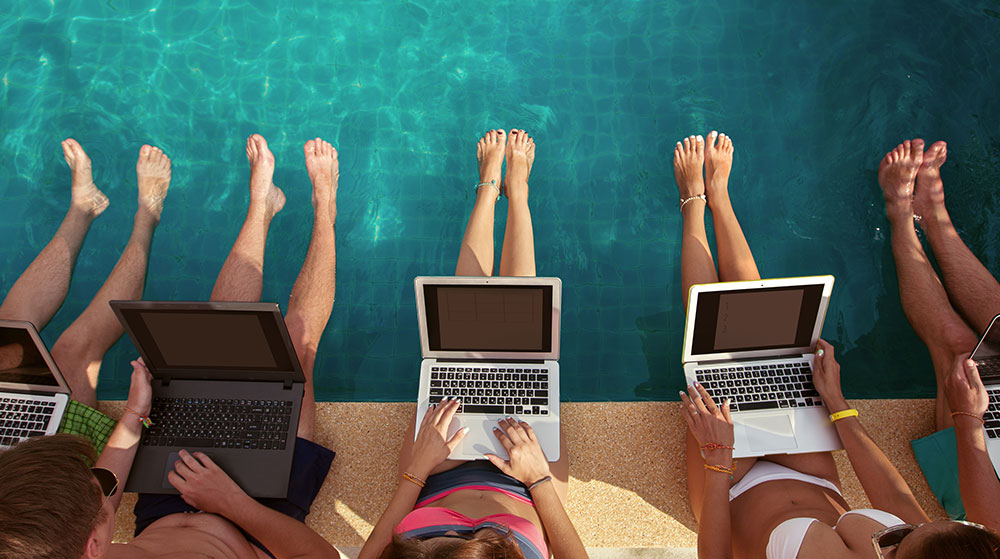
May 31, 2023
Whether you are traveling to the Bahamas or just to your local coffee shop, if you are bringing your phone, laptop, smartwatch, or any device that can connect to the internet then you need to know how to keep these items secure. Physical and digital security precautions are necessary if you are using your technology to access information while you are outside your home or work network.
Remember to pack and use the following tips to ensure your personal and business information is kept safe while traveling.
Public Wi-Fi is convenient and free, why wouldn't you use it. In reality, even if it does not cost anything to access, it can come at the high price of compromising your information. Hackers who have access to the same public Wi-Fi network can view your login credentials, activity, and personal information. Instead of risking these threats, we recommend purchasing a portable router to set up your own Wi-Fi hotspot or enabling a VPN.
If you are in public, then you are probably tempted to use public Wi-Fi. While we recommend avoiding using public Wi-Fi when possible, sometimes it is the only option and, should that be the case, a Virtual Private Network or VPN is necessary. A VPN secures your activity and information on your personal devices from other people accessing the same Wi-Fi network. They can also significantly increase internet speeds and help people access region-restricted websites. Although VPNs are not free, there are multiple options available at varying prices and levels of security.
It can be tempting to post on social media where you are and what you are doing, especially if you are on an exotic vacation. After all, what else is social media for if not tagging yourself in vacation pictures? Posts like these, however, can confirm to cybercriminals of your location and other information such as who you are with which they can use to hack into your devices. Instead of posting immediately during your travels, we recommend posting pictures after you have returned from your trip.
Autofill is a practical solution to use for your personal devices, especially if you find yourself typing the same information over and over. It is important to remember that convenience often sacrifices your security. Certain data such as credit card credentials, passwords, and usernames should never be saved into autofill, even on your personal devices as these electronics could be lost or stolen, especially while traveling.
From facial recognition to a basic pattern - almost all smartphones today have multiple authentication methods, but not everyone is taking advantage of these security solutions. In fact, a recent study reports that 34% of people today are not using any type of lock screen on their phone, leaving them unprotected from criminals if they are lost or stolen. Enabling a two-factor authentication process can also be used as a way to double your device's security against a data breach. If all else fails, backing up your devices beforehand can greatly reduce the stress and issues that losing your personal device can cause.
Being out of your regular environment and daily routine is exciting, but it can also be hazardous if you are not too careful. Be sure to stay observant while you are traveling and be sure to keep all technology you bring with you secured.
For more security and tech tips, check out our other blogs and subscribe to our email alerts.